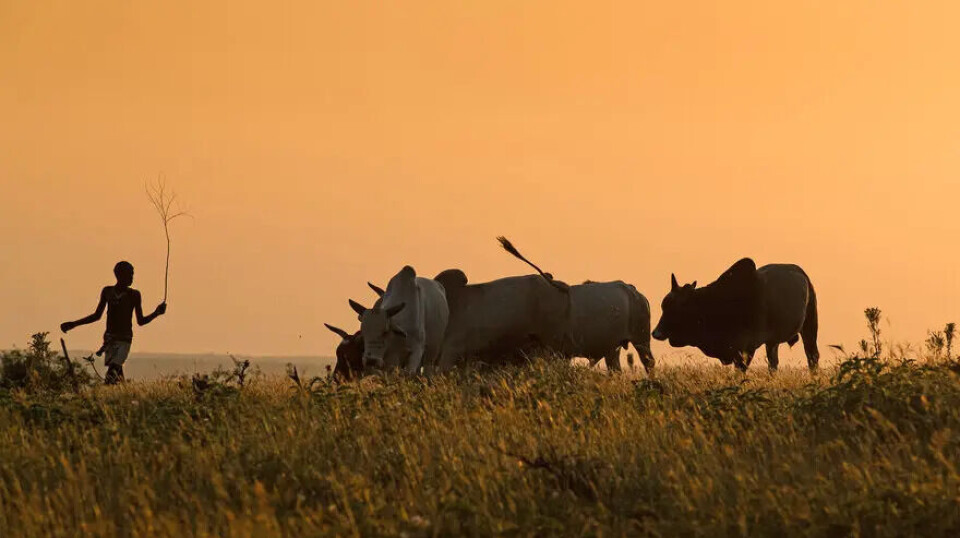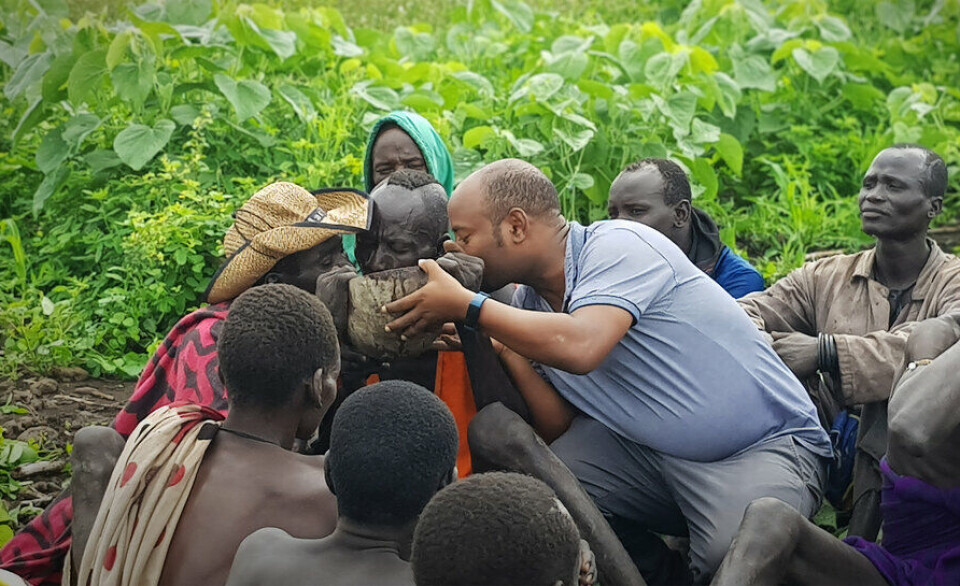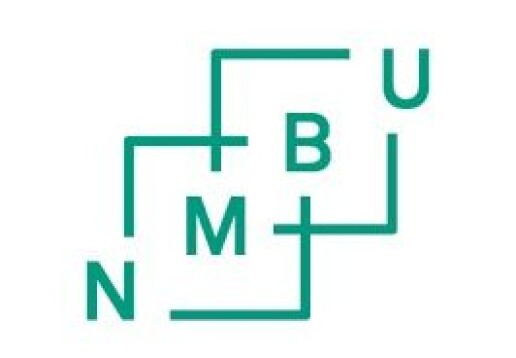THIS CONTENT IS BROUGHT TO YOU BY the Norwegian University of Life Sciences (NMBU) - read more

The sugar industry redefines land and livelihoods of rural people in Ethiopia
New research provides insight into how the industrial endeavours of the Ethiopian government brings new tensions and challenges to marginalised communities.
In its quest for economic growth and development, the government of Ethiopia has long sought to transform the countryside, pushing for a modern agricultural economy based on sugar production.
But through this process, the situation for the rural and indigenous population has taken a turn for the worse.

Researcher Yineckachew Ayele Zikargie has established an understanding of how Ethiopia’s state-owned sugar industry contributes to the continuing marginalisation of pastoralists in the country. A pastoralist is a person or community whose livelihood primarily relies on raising and herding livestock.
Modernist state aspirations
“The establishment and expansion of the sugar industry has been one of the largest and most significant modernisation projects in the Ethiopian lowlands,” Zikargie explains. He is a PhD Fellow at NMBU’s Department of International Environment and Development Studies.
In his doctoral thesis, Zikargie’s main focus is the lowland of Omo Valley in Ethiopia. It is the location of the largest state-owned farm, the Kuraz Sugar Factories, established on close to 245,000 hectares of former pastoral and agro-pastoral land.
The expansion of the industry has been accompanied by the appropriation of land and land-use rights, and the resettlement of pastoralists.
The government's approach is to monopolise power
It is a typical modernist development approach, where central governments want to progress to the ‘next level’ through top-down industrialisation projects, whilst ignoring the impacts on rural societies. In such approaches, pastoralism is often seen as backwards and unproductive.
While the approaches of the different regimes of Ethiopia have changed over time, the results are the same, Zikargie notes.
“The pattern continues to deepen and extend, and recent governments have only reproduced the historical marginalisation of pastoralists and curtailed their rights to land and livelihood,” he says. “The sugar factories and plantations have been the key instrument for extending control over natural resources, increase the movement of labour, stimulate economic growth, and deepen state structures.”
Zikargie also points to conclusions by other scholars that the goal for the government's approach towards the lowlands of Ethiopia ultimately is to monopolise power, through control over social domains and resources.
The coercion of pastoralists
The Omo Valley is also the roaming ground of the Mursi and Bodi people. Animal husbandry is their main livelihood, relying on access to grazing land for herding cattle.
For the development of the sugar farms, large tracts of wet grazing land were annexed from pastoralists such as the Mursi and Bodi. Access to the Omo River and natural resources of the region was restricted.
Along with this, a villagisation program was launched, aiming to re-group the pastoralist people in relatively dense villages, whilst promising improved living standards, economic benefits, and modern infrastructures.
The government wanted them to transform to a sedentary way of life: settled, agricultural, and tax-producing.
Over 2,400 households of Bodi and Mursi people were resettled into six villages between 2011 and 2020.
Given few alternatives other than to comply
Justifying this, the state narrative claimed a need for developing “underutilised” natural resources and an obligation to offer access to basic services for citizens.
“The rights of the citizens involved, mainly land and livelihood rights, are absent from these narratives or are camouflaged by national macro-economic goals,” Zikargie says. “The state achieved their goals through indoctrination and promises. They employed local elites, politicians, local administrations, and some key pastoralist figures to serve and create a development consciousness, or ‘manufacturing consent’ in the words of Noam Chomsky.”
More coercive methods were also employed when military force was used to quell any insurgencies. The inhabitants of the Omo Valley felt they were given few actual alternatives other than to comply.
When moving to their new settlements, the former pastoralists also found out that the government didn’t deliver on their promises, with villages being described as poorly designed and implemented.
“The villagisation program turned into a nightmare for the resettled people. The promised basic services, including health centres, water services, schools, transports, and roads were either not ready or were dysfunctional. The people living there became reliant on food aid. The program also obstructed any effective consideration of the people's own plans, livelihood, traditions, and knowledge,” Zikargie says.

"Let’s see"
Though the state used a heavy-handed approach to impose the land development projects, Zikargie observed that the pastoralists found ways to co-opt, contest, and claim their rights.
They maintained a negotiating stance by expressing conditional consent, symbolised by the phrase ‘let's see’.
“The research shows that a coercive or authoritarian development approach does not necessarily deceive or generate sustainable consent among the rural population," Zikargie says.
The pastoralists' contestations were also demonstrated during the later privatising process of the sugar industry. The local elites of the Omo Valley communities actively engage in takeover strategies, aiming to benefit from and potentially dominate the process.
“The representatives of the communities invoked historical marginalisation, claiming indigenous entitlement to land and natural resources,” Zikargie explains.
Such claims are, however, somewhat hollow. The concept of ‘indigenous’ rights is contentious and vague in Ethiopia, where everyone is theoretically considered indigenous and accorded equal protection and entitlements.
What will happen?
“Ultimately, a sustainable solution will require reforming the Ethiopian state’s approach to development in the pastoral lowland. Development approaches and efforts must respect and enhance the agency of rural people and requires conscious design and consideration of the agency, free will, livelihood, identity, and traditions of the lowland people,” Zikargie says.
So, what predictions can be made for the pastoralists of Ethiopia?
He says that the Mursi and Bodi people he met during his field study were uncertain about their future.
“The socioeconomic conditions of the pastoralists are and will be vulnerable to the various social, economic, political, and environmental factors. They are dependent on the state food aid, and they will remain so until the government choose to abort their top-down, centre-oriented approach of developing its country,” Zikargie says.
References:
Zikargie et al. State-led modernization of the Ethiopian sugar industry: questions of power and agency in lowland transformation, Journal of Eastern African Studies, vol. 16, 2022. DOI: 10.1080/17531055.2023.2166449
Zikargie, Y.A. Jala role: Normative Practice of Collaborative Ethnography in a Hostile Rresearch Frontier, South Omo, Ethiopia, Ethnography, 2022. DOI: 10.1177/14661381221110051
Zikargie, Y.A. & Cochrane, L. Modernist Land Development-Induced Villagisation: Deconstructing Socio-Economic Rights of Pastoralists in South Omo, Ethiopia, Forum for Development Studies, vol. 49, 2022. DOI: 10.1080/08039410.2022.2085168
More content from NMBU:
-
Shopping centres contribute to better health and quality of life
-
We're eating more cashew nuts – and the consequences are serious
-
Do young people with immigrant parents have better health?
-
Who’s picking your strawberries this summer?
-
Can coffee grounds and eggshells be turned into fuel?
-
Rising housing costs fuel inequality in Norway





































